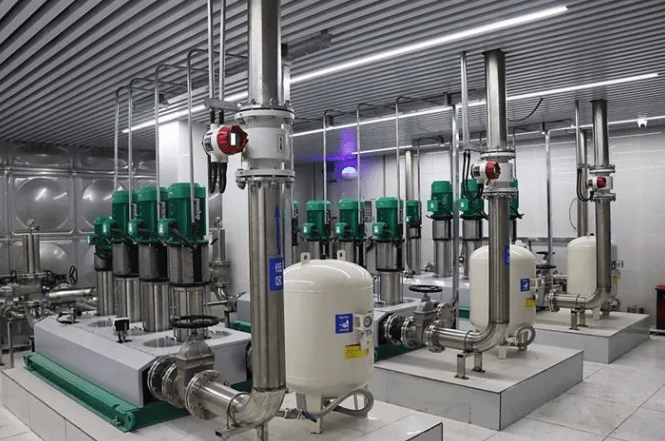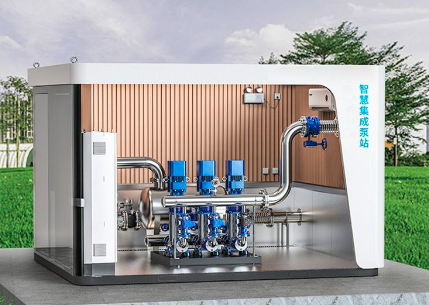Smart Pump Technologies Reshaping Industrial Efficiency and Sustainability
The global industrial landscape is undergoing a transformative shift as smart pump technologies emerge as critical enablers of energy efficiency, operational flexibility, and environmental compliance. With a projected market valuation of $3.56 billion by 2027 and a compound annual growth rate (CAGR) of 6.8% from 2020 to 2027, smart pumps are redefining fluid management across industries. This evolution is driven by the convergence of industrial automation, IoT integration, and escalating demand for sustainable infrastructure solutions.

Market Dynamics Driving Adoption
The rapid digitization of industrial processes in emerging economies has become a cornerstone for smart pump adoption. Governments worldwide are enforcing stringent environmental regulations to reduce carbon footprints and optimize energy consumption. For instance, industries such as oil & gas and water treatment face mounting pressure to minimize waste and enhance operational transparency. Smart pumps address these challenges by enabling real-time monitoring, predictive maintenance, and adaptive flow control—capabilities that traditional pumping systems lack.
In the oil & gas sector, which accounts for a significant market share, smart pumps are revolutionizing upstream, midstream, and downstream operations. These systems mitigate risks of pipeline leaks, reduce downtime through condition-based maintenance, and optimize fuel consumption. Similarly, water and wastewater treatment facilities leverage smart pumps to manage fluctuating demand, detect contamination early, and lower energy costs by up to 30%. The power generation and chemical industries also benefit from enhanced process stability and reduced operational costs.

Technological Innovations Redefining Capabilities
Modern smart pumps integrate advanced sensors, cloud connectivity, and machine learning algorithms to deliver unprecedented operational intelligence. Centrifugal pumps dominate the market due to their versatility in handling high-flow applications such as municipal water supply and cooling systems. Positive displacement pumps, while niche, are gaining traction in chemical processing and precision dosing scenarios where consistent pressure and flow rates are critical.
A key innovation lies in edge computing capabilities embedded within pump systems. By processing data locally, smart pumps minimize latency in critical decision-making, such as adjusting pump speed during sudden demand spikes or equipment malfunctions. Furthermore, IoT-enabled pumps provide centralized visibility across distributed assets, enabling plant managers to optimize energy usage patterns and comply with regulatory reporting requirements.
Regional Growth Patterns
Geographically, Asia-Pacific emerges as the fastest-growing market, fueled by China and India’s aggressive industrialization and urbanization initiatives. China’s “Smart Water City” projects and India’s Atal Mission for Urban Rejuvenation prioritize intelligent water distribution networks, creating robust demand for smart pumping solutions. Meanwhile, Japan and South Korea lead in adopting AI-driven predictive maintenance systems for manufacturing and energy sectors.
North America and Europe remain mature markets, with stringent energy efficiency standards propelling upgrades in aging infrastructure. The U.S. Environmental Protection Agency’s (EPA) ENERGY STAR certifications and the European Union’s Ecodesign Directive incentivize industries to replace outdated pumps with smart alternatives. In the Middle East, smart pumps play a pivotal role in optimizing water management for arid regions, particularly in Saudi Arabia and UAE’s mega-projects like NEOM and Expo 2027 Dubai.
Challenges and Strategic Opportunities
Despite their advantages, high capital investments and resistance from small-scale manufacturers hinder widespread adoption. Many SMEs perceive smart pumps as complex solutions requiring specialized expertise, creating a gap between early adopters and traditional users. However, this challenge opens avenues for pump manufacturers to develop modular, plug-and-play systems with scalable features. Partnerships with software providers and energy service companies (ESCOs) can further democratize access through performance-based contracting models.
Another opportunity lies in retrofitting existing pumps with smart components. Sensors and connectivity modules can transform conventional systems into IoT-ready assets at a fraction of the cost of full replacements. This approach aligns with circular economy principles, extending equipment lifespans while reducing electronic waste.
Future Prospects and Industry Transformation
Looking ahead, the convergence of digital twins and augmented reality (AR) will redefine pump maintenance strategies. Technicians equipped with AR headsets can overlay real-time performance data onto physical equipment, accelerating troubleshooting and reducing human error. Additionally, blockchain technology may enhance supply chain transparency for pump components, ensuring compliance with ethical sourcing and sustainability standards.
Renewable energy integration presents another frontier. Smart pumps equipped with grid-responsive algorithms can synchronize with solar or wind power availability, storing excess energy in hydrostorage systems during peak generation periods. This synergy supports global net-zero targets while stabilizing energy grids.
Conclusion
The smart pump revolution transcends mere technological advancement—it represents a paradigm shift in industrial resource management. By marrying mechanical engineering with digital intelligence, these systems empower industries to achieve unprecedented levels of efficiency, resilience, and environmental stewardship. As regulatory pressures intensify and IoT infrastructure matures, smart pumps will transition from optional upgrades to indispensable components of modern industrial ecosystems. Companies that embrace this transformation today will not only future-proof their operations but also contribute to a more sustainable global economy.
SEO Keywords:
Smart Pump Market, Industrial Automation, Energy Efficiency, IoT in Pumping Systems, Water Management Solutions, Smart Pump Technologies, Industrial IoT Applications




